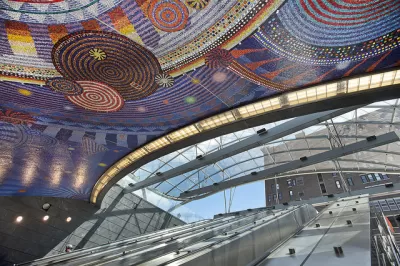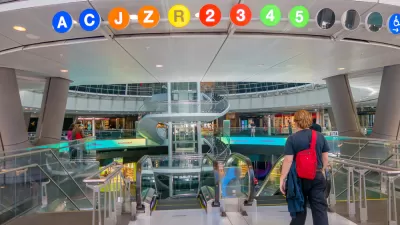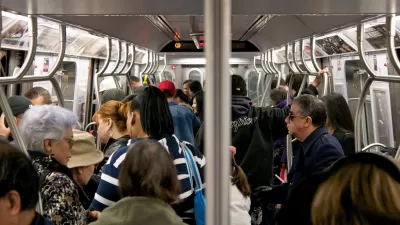A new report from the Regional Plan Association identifies the nature of the problem with the New York MTA's construction costs, and recommends 11 possible solutions.

Brian M. Rosenthal reports:
The Metropolitan Transportation Authority could dramatically reduce its sky-high construction costs by rethinking how it manages projects, prioritizing efficiency over bureaucracy and ending rules that require far more workers than are needed, according to a new report based on two years of research.
The Regional Plan Association released the report, "Building Rail Transit Projects Better for Less" [pdf], earlier this week to highlight recommendations included in the Fourth Regional Plan.
"Among other factors, the report’s authors found that recent megaprojects like the first phase of the Second Avenue Subway on Manhattan’s Upper East Side have suffered from overly burdensome environmental reviews, repeated political interference, out-of-date work rules, 'excessive customization' and a lack of coordination, communication and accountability," adds Rosenthal.
The report reaches some of the same conclusions put forward in a December feature published by the New York Times, but the RPA also takes the additional step of providing 11 policy recommendations to rein in the MTA's capital spending. Rosenthal summarizes that list of solutions in the source article.
FULL STORY: M.T.A. Construction Costs ‘Threaten to Strangle’ Growth, Report Warns

Maui's Vacation Rental Debate Turns Ugly
Verbal attacks, misinformation campaigns and fistfights plague a high-stakes debate to convert thousands of vacation rentals into long-term housing.

Planetizen Federal Action Tracker
A weekly monitor of how Trump’s orders and actions are impacting planners and planning in America.

San Francisco Suspends Traffic Calming Amidst Record Deaths
Citing “a challenging fiscal landscape,” the city will cease the program on the heels of 42 traffic deaths, including 24 pedestrians.

Defunct Pittsburgh Power Plant to Become Residential Tower
A decommissioned steam heat plant will be redeveloped into almost 100 affordable housing units.

Trump Prompts Restructuring of Transportation Research Board in “Unprecedented Overreach”
The TRB has eliminated more than half of its committees including those focused on climate, equity, and cities.

Amtrak Rolls Out New Orleans to Alabama “Mardi Gras” Train
The new service will operate morning and evening departures between Mobile and New Orleans.
Urban Design for Planners 1: Software Tools
This six-course series explores essential urban design concepts using open source software and equips planners with the tools they need to participate fully in the urban design process.
Planning for Universal Design
Learn the tools for implementing Universal Design in planning regulations.
Heyer Gruel & Associates PA
JM Goldson LLC
Custer County Colorado
City of Camden Redevelopment Agency
City of Astoria
Transportation Research & Education Center (TREC) at Portland State University
Jefferson Parish Government
Camden Redevelopment Agency
City of Claremont





























